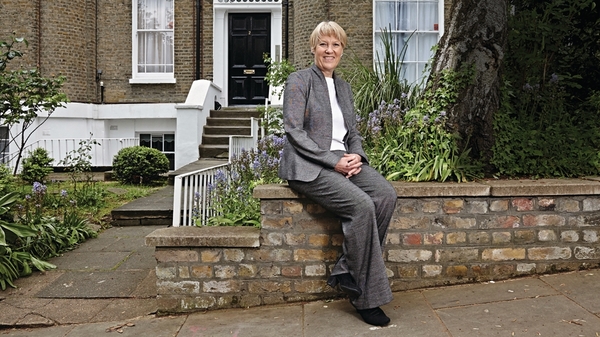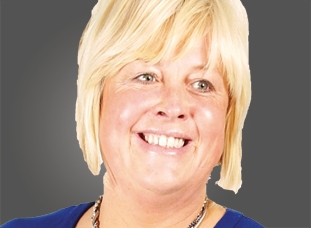You are viewing 1 of your 1 free articles
Spotting the signs
Sunderland-based Gentoo has been pushing social landlords to do more to safeguard tenants. Martin Hilditch finds out why and how it tackles the issue

Protecting vulnerable children and adults is one of the most challenging and important roles that frontline housing staff perform.
Because they regularly enter people’s homes – for example, to carry out repair work or talk about benefit reform – they are one of the few agencies capable of spotting the early signs of abuse and making sure something is done about it.
Over the past year, Sunderland-based landlord 32,500-home Gentoo has been doing more than most to raise the profile of this vital work – noteably by launching a domestic abuse housing alliance with London-based landlord Peabody and charity Standing Together Against Domestic Violence in a bid to improve the housing sector’s response to the issue.
Vital signs
Gentoo’s community safety and safeguarding service takes the lead on making sure the vital signs of abuse aren’t missed among its own tenants – helping to train staff internally and shouting about the importance of taking action externally.
The team is funded internally and forms part of its community safety objective to make sure residents feel ‘safe and secure in their home and community’.

In order to help landlords gain a better understanding about what they can do to improve their own approach, Inside Housing spoke to Michelle Meldrum, managing director of Gentoo Operations, who leads on the issue for the landlord.
And Gentoo has also opened its database, so readers can see the types of case it is dealing with, who is identifying problems on the ground and what happens as a consequence.
We started by asking Ms Meldrum to spell out exactly why she thinks landlords should be doing more.
Q: Why should landlords be taking more of a lead when it comes to safeguarding?
Michelle Meldrum: ‘It is the right thing to do. We are well placed in communities and in people’s homes. I can’t think of any other agency that is so well placed to be the eyes and ears to spot dangerous living conditions or signs of abuse. So there is the whole social conscience thing.
‘There are business benefits as well. If you can resolve a situation rather than the victim having to terminate a tenancy that is obviously one. Then there are things like [reduced] repairs costs.’
Q: What have you done to make sure staff recognise potential warning signs? What kind of issues are they looking out for, and at what stage would they report a concern?
MM: ‘We have trained all the front-line staff. That is repairs, front-line housing management and so on. We have also trained people in the customer contact centre to recognise those repairs commonly associated with domestic violence, such as holes in internal doors and broken locks on bathroom doors. If there are any three in any 12-month period they will report it to our specialist community safety and safeguarding team.’
Q: What evidence is there that this approach actually has an impact?
MM: ‘As an example, last time we did the refresher training we had 35 referrals come into us that next week. It usually sparks after the training. We are due to do refresher training again in April.’
Q: Do any of the frontline staff have any concerns about this role?
MM: ‘Particularly for the trades guys where there is a bit of scepticism about whether it will come back on them [making a report] they can just tick a little box on their handhelds to say there is something not quite right. This makes it more likely for them to refer in than having to complete a form, make a phone call or send an email.
Q: What action is taken after a report is made?
MM: ‘Our specialist team take a look at it. The referral might not be good quality or there might be duplications. We also check to make sure that we don’t already know the household in that capacity.’
Q: What do you do if the data seems worrying and the household isn’t known to your team? How do you find out more and protect a potentially vulnerable individual at the same time?
MM: ‘We try to make contact and try not to single out the household. We might do a general survey [such as a tenant satisfaction survey] across the street. That just starts the conversation.’
Q: Do all issues get reported to the council – and who makes the decision about what does?
MM: ‘The safeguarding team does an internal filter. Then if we feel it needs to go off [to the council], we know exactly what has gone off from Gentoo as a whole, and we can do a follow-up [to find out what action has been taken as a result].
Q: ‘What are the most common issues raised with the safeguarding team?
MM: ‘We have got more people reporting domestic violence to us than we have ever had. Over the past three years, 60% of our cases have been domestic violence related. That is a growing number. We have a victim support team [to help work with those affected] in partnership with Sunderland’s lead domestic violence and abuse agency Wearside Women in Need. Over the last three years we have supported 143 cases.
Q: What happens if information, say about a vulnerable child, is potentially worrying but doesn’t pass council thresholds for making an official referral to the children’s department?
MM: ‘What we do is we pass on any information that we have got. We have recognised something that may not count as a referral but may be part of a live case. We will still have that conversation with Children’s Services and say “are you aware of this?”.’
The Domestic Abuse Housing Alliance.
Gentoo launched the Domestic Abuse Housing Alliance (DAHA) in September this year alongside London-based housing association Peabody and charity Standing Together Against Domestic Violence.
Its aim is simple – to improve the housing sector’s response to domestic abuse by the introduction and adoption of an established set of national domestic abuse service standards. It wants to bring together housing providers, charities, social businesses and government to do this and stop domestic abuse before it is too late.
The DAHA will produce the national services standards, examine service delivery nationally and bring together best practice. The standards will be used as an assessment tool to allow providers to assess their existing practice and implement improvement plans where necessary.
The standards will deal with eight priority areas: policy and procedure; case management; risk management; accessibility; support, enforcement and prevention; partnership working; training; and publicity and awareness.
To date there have been more than 20 expressions of interest from other housing providers. DAHA is currently following-up with these organisations with a view to carrying out initial assessments of their performance and an analysis of any gaps in their service.
Gentoo is also working with the High Sheriff of Tyne and Wear, Ruth Thompson, who has adopted domestic violence as her cause for her year in office. It is also looking to fund research into the role of housing providers in tackling domestic violence, what impact they can have and the benefits this could also bring them as businesses.
Safeguarding adults
Gentoo’s community safety and safeguarding team has been responsible for the organisation’s safeguarding adults agenda for the past three years. A total of 65 referrals have been made to the council’s adult safeguarding team in that time, although this doesn’t include domestic violence.
| Year | 2011/12 | 2012/13 | 2013/14 |
|---|---|---|---|
| Total | 24 | 21 | 20 |
Details about the type of abuse identified as a result are shown below. Some of the figures are higher than the total number of referrals due to some individual cases involving multiple issues.
| Type of abuse | 2011/12 | 2012/13 | 2013/14 |
|---|---|---|---|
| Neglect | 2 | 3 | 2 |
| Psychological | 5 | 4 | 6 |
| Physical | 8 | 4 | 3 |
| Sexual | 1 | 1 | 1 |
| Financial | 8 | 18 | 15 |
| Verbal | 3 | 0 | 0 |
Safeguarding children
Gentoo has made 264 safeguarding referrals to Sunderland Council’s children’s services department over the past three years. The majority of these originated from reports made by its frontline staff.
| Year | 2011/12 | 2012/13 | 2013/14 |
|---|---|---|---|
| Total | 126 | 80 | 58 |
A change in the threshold guidance for referrals was introduced by Sunderland City Council in 2012/13. This accounts for the fall in referrals since 2011/12.
Michelle Meldrum, managing director of Gentoo Operations, says the fall does not necessarily mean that cases are slipping through the cracks.
This is because all information is still passed to the council – so nothing is lost in the system – and the landlord’s own teams can work to address some of the concerns that emerge.
And the change means that the council’s children’s services department is able to devote more of its resource to the cases that need intervention the most urgently.














